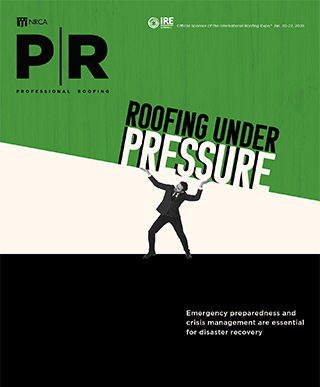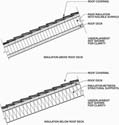There has been some controversy concerning the Small Business Administration (SBA) lately, and the outcome may benefit roofing contracting companies that rely on SBA for financial services.
Formed about 50 years ago, SBA has attempted to provide assistance to small enterprises in all industries. The administration's programs include financial and federal contract procurement assistance; management assistance; and specialized outreach to women, minorities and armed forces veterans. Nearly 20 million small businesses have received direct or indirect help from SBA programs since 1953. And SBA says its current business loan portfolio of roughly 219,000 loans worth more than $45 billion makes it the largest single financial backer of U.S. businesses.
But despite its accomplishments, SBA has been the center of some heated debate about whether to change its definition of “small business.” In general, SBA's current common size standards for small businesses are as follows:
- 500 employees or less for most manufacturing and mining industries
- 100 employees or less for all wholesale trade industries
- $6 million or less in annual revenue for most retail and service industries
- $28.5 million or less in annual revenue for most general and heavy construction industries
- $12 million or less in annual revenue for all specialty trade contractors
- $750,000 or less in annual revenue for most agricultural industries
In March, SBA proposed it revise its method of determining size standards to simplify small-business categories (there currently are 37 categories of small businesses), as well as rely more on number of employees a business has rather than annual revenue for size requirements. Proponents argued the changes would make it easier for businesses to apply for SBA programs, as well as make reliance on the number of employees a more stable indicator of business size because annual revenues too often are affected by short-term economic conditions.
But opponents, such as small-business advocates, said the changes would harm businesses' chances of securing loans. SBA estimates nearly 70,000 businesses would have been affected by the changes—35,200 businesses would have gained eligibility as small businesses, and 34,100 would have lost their eligibility. As a result, SBA retreated from its stance in July. All previous requirements remain in place.
Despite its failure to change its requirements, SBA plans to revisit the issue once it obtains more data. For more information about SBA and its services, log on to www.sba.gov.
Ambika Puniani is editor of Professional Roofing magazine and NRCA's director of communications.

